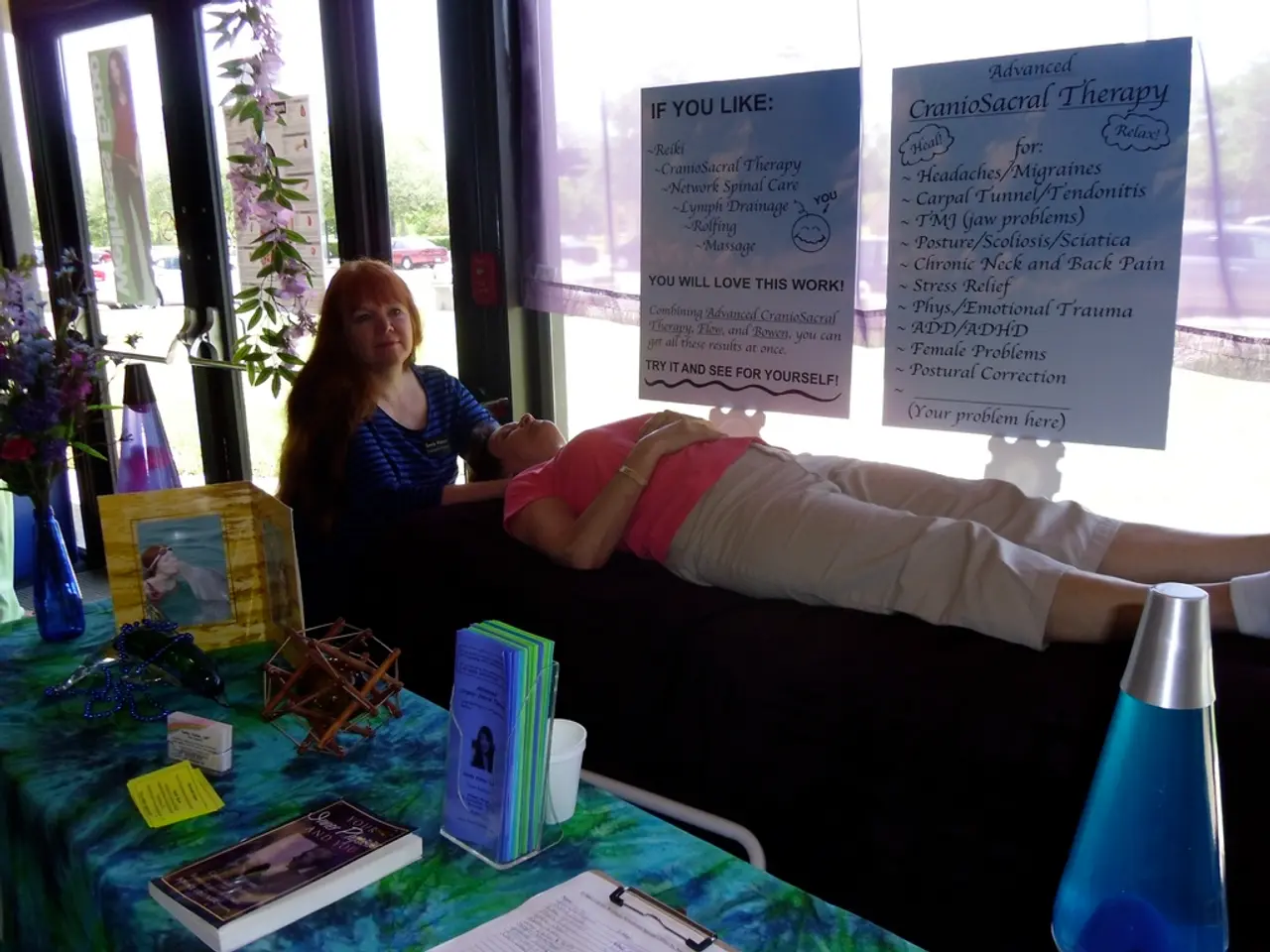Identifying Depression Signs: A Guide to Recognition and Subsequent Actions
Depression is a mood disorder that affects both mind and body, impacting individuals of all ages and backgrounds. It's a common yet serious condition that can range from mild to severe, affecting multiple areas of someone's life.
In Men, symptoms may include increased irritability, frustration over minor matters, or angry outbursts, escapist behavior, physical complaints, risky or reckless behavior, and alcohol or drug use. Women, on the other hand, are nearly twice as likely to be diagnosed with depression and are uniquely susceptible to premenstrual dysphoric disorder, perinatal depression, and perimenopausal depression.
Children with depression can express irritability rather than sadness, have drop in grades, failure to meet expected weight gains, separation anxiety or clinginess, refusal to go to school, worry and anxiety, body aches and pains. Teenagers with depression may have poor attendance at school, or their grades may suffer. They can also exhibit hypersomnia, hyperphagia, personality disturbances, extreme sensitivity, drug and/or alcohol use, social avoidance, apathy, self-harming behaviors.
The two main symptoms of Major Depressive Disorder (MDD) are depressed mood and anhedonia, or loss of interest or pleasure. To receive a diagnosis of MDD, a person must experience at least five of the above symptoms for at least two weeks. Cognitive symptoms of depression can affect concentration, memory, and decision-making.
Depression often feels heavy and all-consuming, making activities unenjoyable and overwhelming. When hopelessness is intense, realistic steps to manage depression include acknowledging the depression honestly, seeking professional help, challenging unhealthy thoughts, reaching out for social support, and following treatment plans consistently.
Professional help may involve therapy such as Cognitive Behavioral Therapy or interpersonal therapy, medication prescribed and monitored by psychiatrists, or a combination tailored to individual needs. Mental health professionals provide personalized treatment to address specific symptoms and challenges.
Depression is highly treatable, especially with early intervention. Treatment options also include transcranial magnetic stimulation (TMS), electroconvulsive therapy (ECT), and esketamine.
In older adults and the elderly, depression may exhibit memory difficulties in addition to a melancholy mood and psychomotor disturbances, which can sometimes be mistaken for dementia.
Physical symptoms of depression can include restlessness, sluggishness, excessive tiredness, pain, and changes in appetite or sleep patterns.
If you're experiencing depression symptoms, reaching out for professional support is a sign of strength, not weakness. With the right treatment and support system, you can manage your symptoms, regain your sense of well-being, and rediscover hope for the future. If symptoms last two weeks or longer and interfere with daily functioning, persistent feelings of sadness, emptiness, or hopelessness most days, significant changes in appetite or unintentional weight loss/gain, sleep disturbances, difficulty concentrating, making decisions, or remembering things, loss of interest in activities, increased irritability, restlessness, feeling slowed down, excessive guilt or feelings of worthlessness, fatigue or loss of energy nearly every day, it's time to seek professional help.
Engaging in mental health and wellness is crucial for managing depression, as it can affect every aspect of a person's life, regardless of age or background. For instance, it's important to understand that science plays a significant role in the advancement of health-and-wellness practices, providing us with numerous treatment options such as cognitive behavioral therapy, medication, and various alternative therapies like transcranial magnetic stimulation and electroconvulsive therapy.




